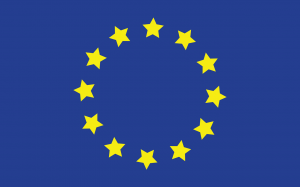What is the Digital Markets Act?
The Digital Markets Act introduces rules for platforms that act as “gatekeepers” in the digital sector. These are platforms that have a significant impact on the internal market, serve as an important gateway for business users to reach their customers, and which enjoy, or will foreseeably enjoy, an entrenched and durable position. This can grant them the power to act as private rule-makers and to function as bottlenecks between businesses and consumers.
The Digital Markets Act aims at preventing gatekeepers from imposing unfair conditions on businesses and consumers and at ensuring the openness of important digital services. Examples of these unfair conditions that gatekeepers sometimes impose on others include prohibiting businesses from accessing their own data when operating on these platforms, or situations where users are locked into a particular service and have limited options for switching to alternative services.
Common rules across the single market will foster innovation, growth and competitiveness, and facilitate the scaling up of smaller platforms, small and medium-sized enterprises and start-ups who will have a single, clear framework at EU level.
Who will be subject to the Digital Markets Act?
The Digital Markets Act will be applicable only to large companies that will be identified as “gatekeepers” according to objective criteria set out in the proposal. These are companies that play a particularly important role in the internal market because of their size and their importance as gateways for business users to reach their customers.
These companies control at least one so-called “core platform service” (such as search engines, social networking services, certain messaging services, operating systems and online intermediation services), and have a lasting, large user base in multiple countries in the EU.
Specifically, there are three main cumulative criteria that bring a company under the scope of the Digital Markets Act:
- A size that impacts the internal market: this is presumed to be the case if the company achieves an annual turnover in the European Economic Area (EEA) equal to or above € 6.5 billion in the last three financial years, or where its average market capitalisation or equivalent fair market value amounted to at least € 65 billion in the last financial year, and it provides a core platform service in at least three Member States;
- The control of an important gateway for business users towards final consumers: this is presumed to be the case if the company operates a core platform service with more than 45 million monthly active end users established or located in the EU and more than 10 000 yearly active business users established in the EU in the last financial year;
- An (expected) entrenched and durable position: this is presumed to be the case if the company met the other two criteria in each of the last three financial years.
If all of these quantitative thresholds are met, the specific company is presumed to be a gatekeeper, unless it submits substantiated arguments to demonstrate the contrary. If not all these thresholds are met, the Commission may evaluate, in the context of a market investigation for designating gatekeepers, the specific situation of a given company and decide to identify it as a gatekeeper on the basis of a qualitative assessment.
What are the consequences of being identified as a gatekeeper under the Digital Markets Act?
Gatekeepers will carry an extra responsibility to conduct themselves in a way that ensures an open online environment that is fair for businesses and consumers, and open to innovation by all, by complying with specific obligations laid down in the draft legislation.
Under the Digital Markets Act, companies identified as gatekeepers will need to proactively implement certain behaviour, and will have to refrain from engaging in unfair behavior, which is defined in the legislation in the light of market experience to date.
When a company does not yet enjoy an entrenched and durable position, but it is foreseeable that it will in the near future, a proportionate subset of obligations will apply, to ensure that the gatekeeper concerned does not achieve by unfair means an entrenched and durable position in its operations.
What are the “do’s and don’ts” for gatekeepers?
The Digital Markets Act establishes a series of obligations that gatekeepers will need to implement in their daily operations to ensure fair and open digital markets.
Some examples of the “do’s” are the following:
- There will be specific situations in which gatekeepers need to allow third parties to inter-operate with the gatekeeper’s own services.
- Gatekeepers need to provide the companies advertising on their platform with access to the performance measuring tools of the gatekeeper and the information necessary for advertisers and publishers to carry out their own independent verification of their advertisements hosted by the gatekeeper;
- Gatekeepers need to allow their business users to promote their offers and conclude contracts with their customers outside the gatekeeper’s platform;
- Gatekeepers need to provide their business users with access to the data generated by their activities on the gatekeeper’s platform.
Some example of the “don’ts” include:
- Gatekeepers may no longer block users from un-installing any pre-installed software or apps;
- Gatekeepers may not use data obtained from their business users to compete with these business users;
- Gatekeepers may not restrict their users from accessing services that they may have acquired outside of the gatekeeper platform.
How does the Digital Markets Act work in practice?
Once the Digital Markets Act enters into force, the Commission will first assess whether companies active in core platform services qualify as a “gatekeeper” under the Digital Markets Act:
- Companies will have to verify themselves if they meet the quantitative thresholds included in the DMA to identify gatekeepers. They will then have to provide the Commission with information on this.
- The Commission will then designate as “gatekeepers” those companies that meet the thresholds in the Digital Markets Act based on the information provided by the companies (subject to a possible substantiated rebuttal) and/or following a market investigation.
- Within six months after a company is identified as a “gatekeeper”, it will have to comply with the “do’s” and “don’ts” listed in the DMA. For those gatekeepers that do not yet enjoy an entrenched and durable position, but are expected to do so in the near future, only those obligations apply that are necessary and appropriate to ensure that the company does not achieve by unfair means such entrenched and durable position in its operations.
What happens if a gatekeeper ignores the rules?
To ensure the effectiveness of the new rules, the possibility of sanctions for non-compliance with the prohibitions and obligations is foreseen.
If a gatekeeper does not comply with the rules, the Commission can impose fines of up to 10% of the company’s total worldwide annual turnover and periodic penalty payments of up to 5% of the company’s total worldwide annual turnover.
In case of systematic infringements the Commission can impose additional remedies. Where necessary to achieve compliance, and where no alternative, equally effective measures are available, these can include structural remedies, such as obliging a gatekeeper to sell a business, or parts of it (i.e. selling units, assets, intellectual property rights or brands).
What is the purpose of market investigations under the Digital Markets Act?
To ensure that the new gatekeeper rules keep up with the fast pace of digital markets, the Commission will have the power to carry out market investigations. The purpose of market investigations is three-fold:
- Identifying gatekeepers that are not captured by the quantitative thresholds foreseen in the Digital Markets Act, or which meet these thresholds but have presented a substantiated submission rebutting the presumption based on these thresholds;
- Identifying whether other services within the digital sector should be added to the list of core platform services falling within the scope of the Regulation, or whether new practices appear which risk having the same detrimental effects as those already covered;
- Designing additional remedies for when a gatekeeper has systematically infringed the rules of the Digital Markets Act.
Who will enforce the Digital Markets Act?
Given the cross-border nature of gatekeepers and the complementarity of the Digital Markets Act with the Digital Service Act and other internal market rules and competition law in particular, the enforcement of the tool will remain in the hands of the Commission. Member States may always request the Commission to open a market investigation for the purpose of designating a new gatekeeper.
Will private damages be available to those harmed by gatekeeper conduct?
The Digital Markets Act is a Regulation, containing precise obligations and prohibitions for the gatekeepers in scope, which can be enforced directly in national courts. This will facilitate direct actions for damages by those harmed by the conduct of non-complying gatekeepers.
Can the enforcement of existing competition law not tackle these issues?
The Digital Markets Act complements the enforcement of competition law at EU and national level. The new rules are without prejudice to the implementation of EU competition rules (Articles 101 and 102 TFEU) and to national competition rules regarding unilateral behaviour.
Regulation and competition enforcement already coexist in other sectors, such as energy, telecoms or financial services. The Digital Markets Act addresses unfair practices by gatekeepers that either (i) fall outside the existing EU competition control rules, or, (ii) cannot always be effectively tackled by these rules because of the systemic nature of some behaviours, as well as the ex-post and case-by-case nature of competition law. The Digital Markets Act will thus minimise the harmful structural effects of these unfair practices ex-ante, without limiting the EU’s ability to intervene ex-post via the enforcement of existing EU competition rules.
What is the legal basis for the DMA?
Article 114 TFEU ensures the functioning of the single market and is the relevant legal basis for this initiative.
Digital services are by essence of cross-border nature. The new rules will limit regulatory fragmentation for digital services, in particular in relation to gatekeeper platforms, and reduce compliance costs for companies operating in the internal market.
Press contact
· Johannes BAHRKE
Phone
+32 2 295 86 15
· Arianna PODESTA
Phone
+32 2 298 70 24
· Charles MANOURY
Phone
+32 2 291 33 91
· Maria TSONI
Phone
+32 2 299 05 26
The European Commission is committed to personal data protection. Any personal data is processed in line with Regulation (EC) 2018/1725. All personal information processed by the Directorate-General for Communication / European Commission Representations is treated accordingly.







